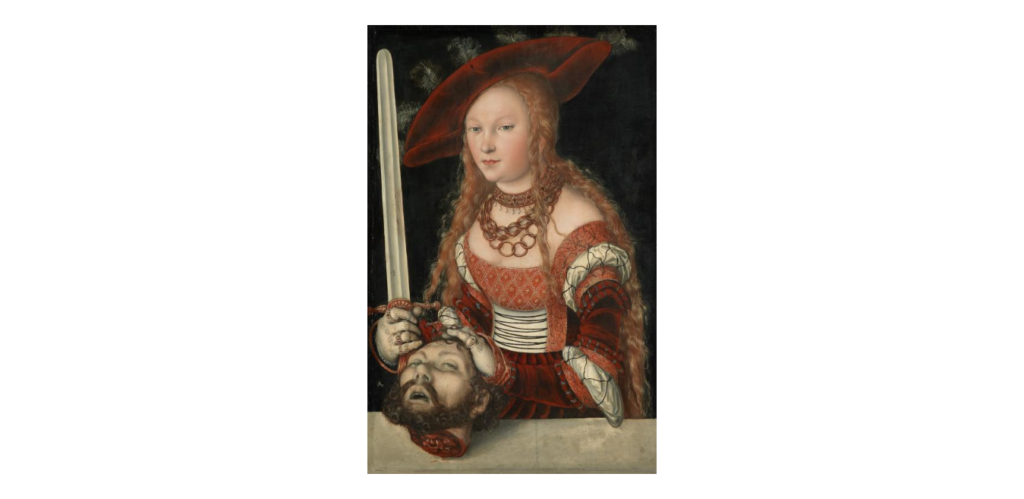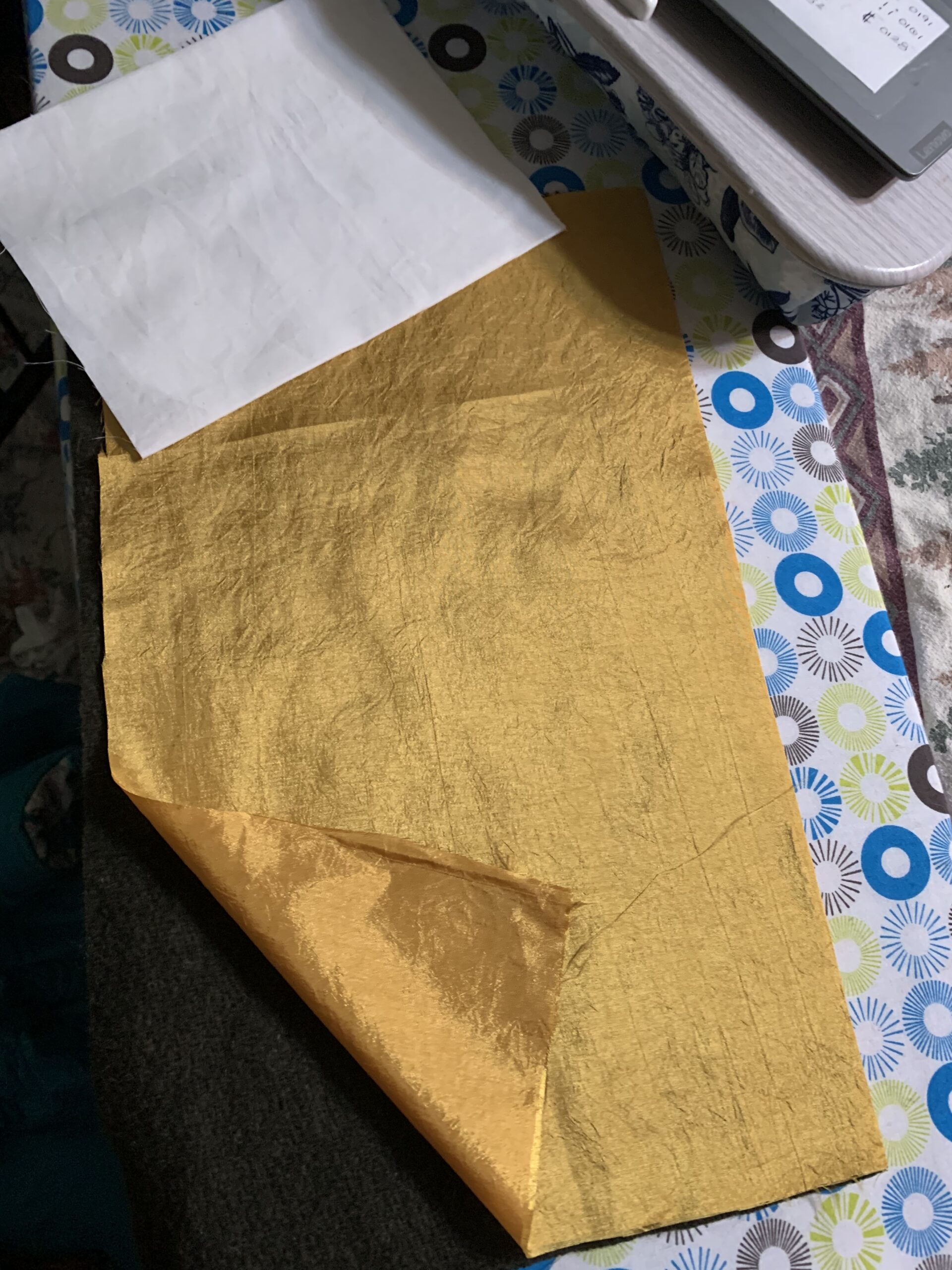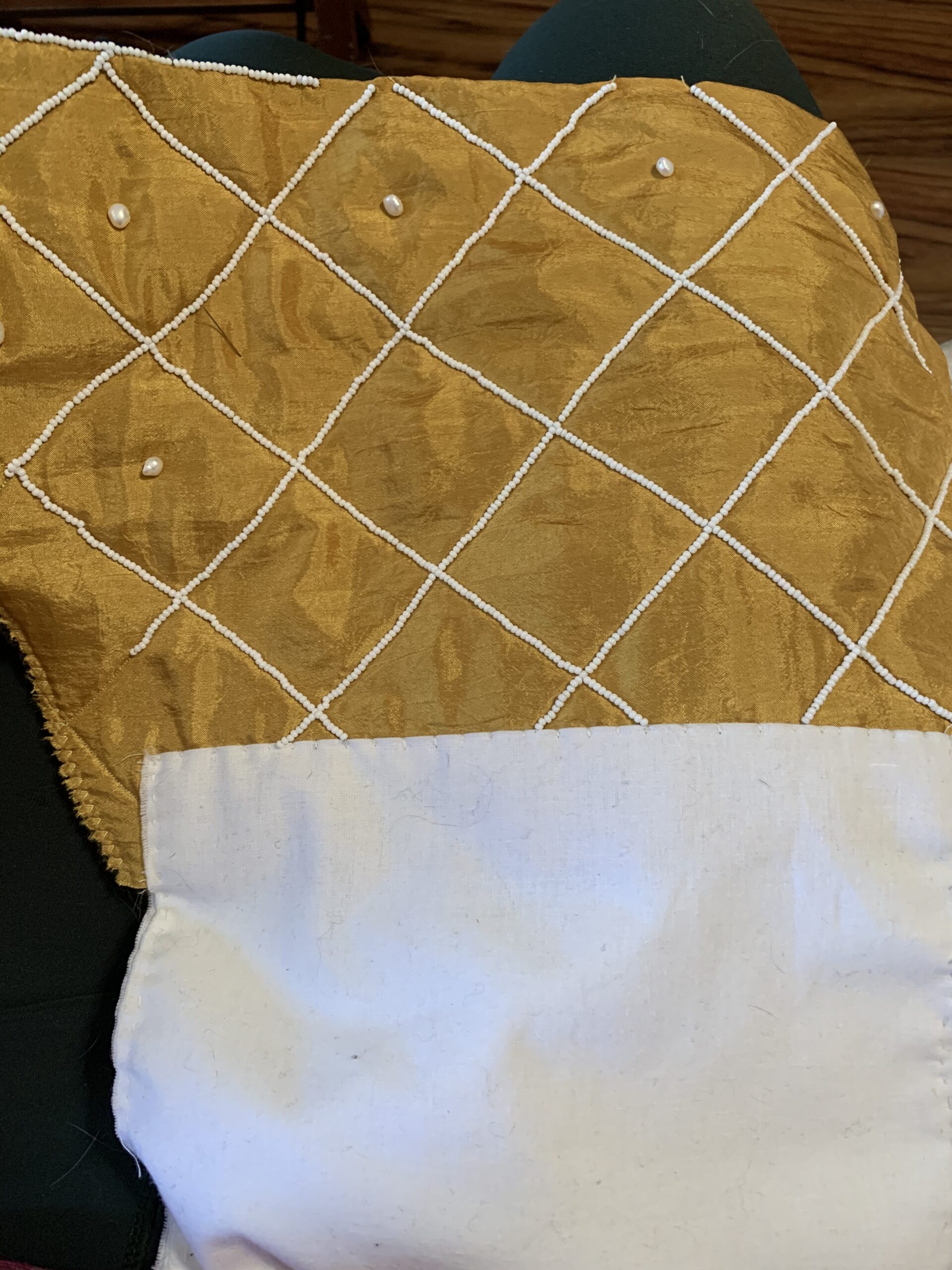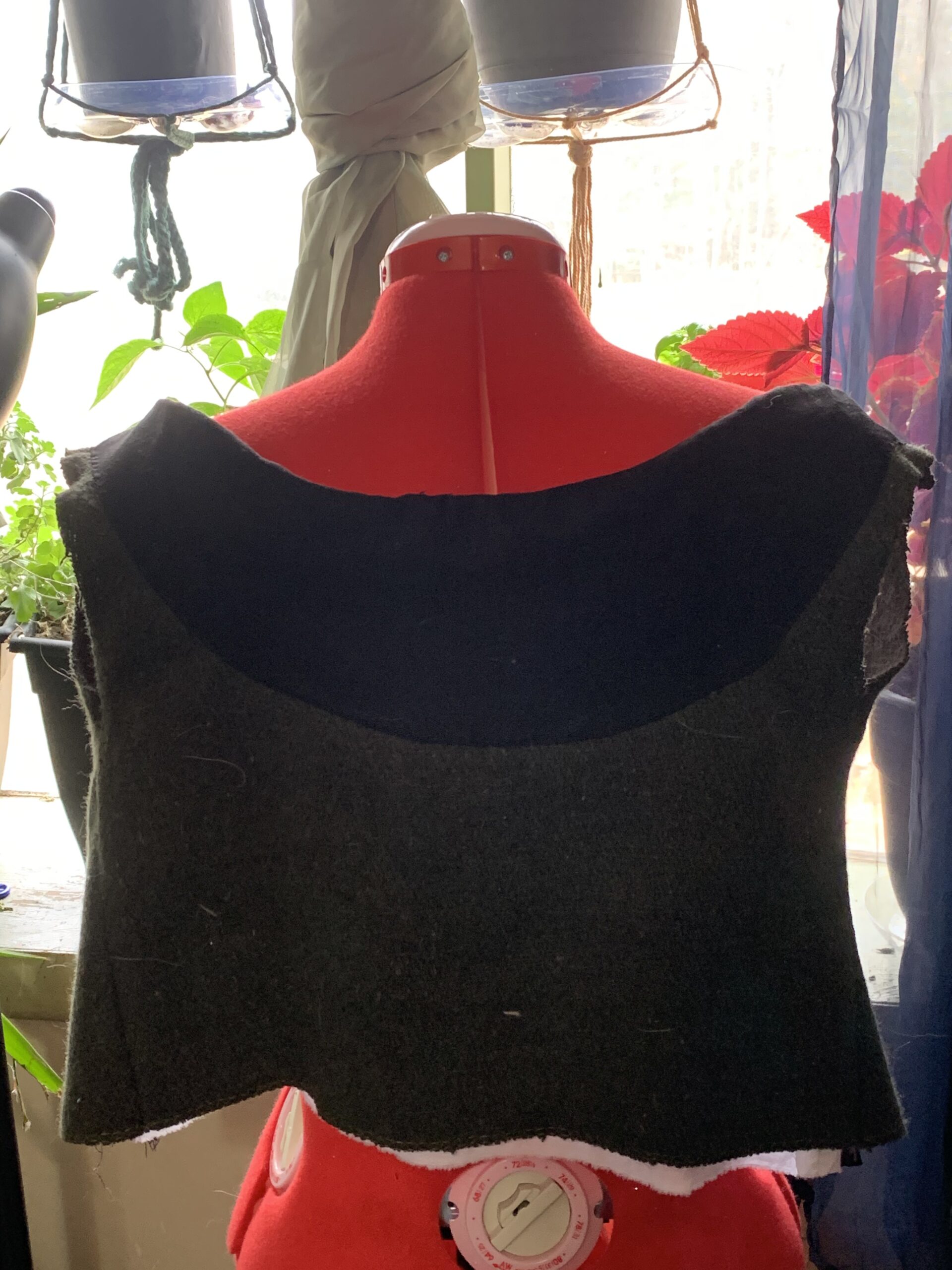Over the past few days I have focused on the bodice to my gown; getting the pattern made and cut out, applying the trim and beading the center piece. The beading is roughly based on the bodice piece in the following painting by Lucas Cranach the Elder.

c. 1530
To begin this process I cut a square piece of white cotton which I layered with three other pieces to add thickness. Then I took my synthetic silk and cut a rectangle-like piece which I fit to be the width of the front opening of the bodice pattern I had cut out. I used a piece of extra wool to place in between the two pieces of silk to add durability and depth to the fabric after I sewed down the pattern lines.






I used white cotton for the lining, wool for the base and black linin for the trim. I have yet to add the sleeves but hope to do so by the next check in.
Source:
Kunsthistorisches Museum


I forgot to mention that the small beads are glass while the ones in the middle are fresh water pearls
You are making good progress!
The machine basting of the front piece is clever. Stabilizing all the layers was helpful in the hand beading I am sure.
Don’t apologize for glass beads! Similar seed beads seem to have been common at least for 1000 years. And they would have been a luxury item just as pearls were.
Thank you, I didn’t know about the seed beads that is something I will keep in mind whenever I use the glass ones 🙂
I agree with Kay on the basting and the seed beads. Brilliant looking bodice. My laurel always told me not to apologize, but to give reason why you made that choice. Could be do to cost, availability, dangerous material (foods and dying).
On a construction note, with a wide neckline, giving a bare shoulder type of bodice/gown, move the shoulder seam toward the back and off the top of the shoulder. It allows for easier adjustment to have the fabric curve over the top of the arm/shoulder joint.
Thank you for your kind words and good advice about the beads and other materials in the future, this challenge has taught me that even something I didn’t think was period, might have some hidden accuracy that I can research into. And thank you for your suggestion about the seam, as I would have never even thought about moving the shoulder seam towards the back! I will defiantly try that on my next project!